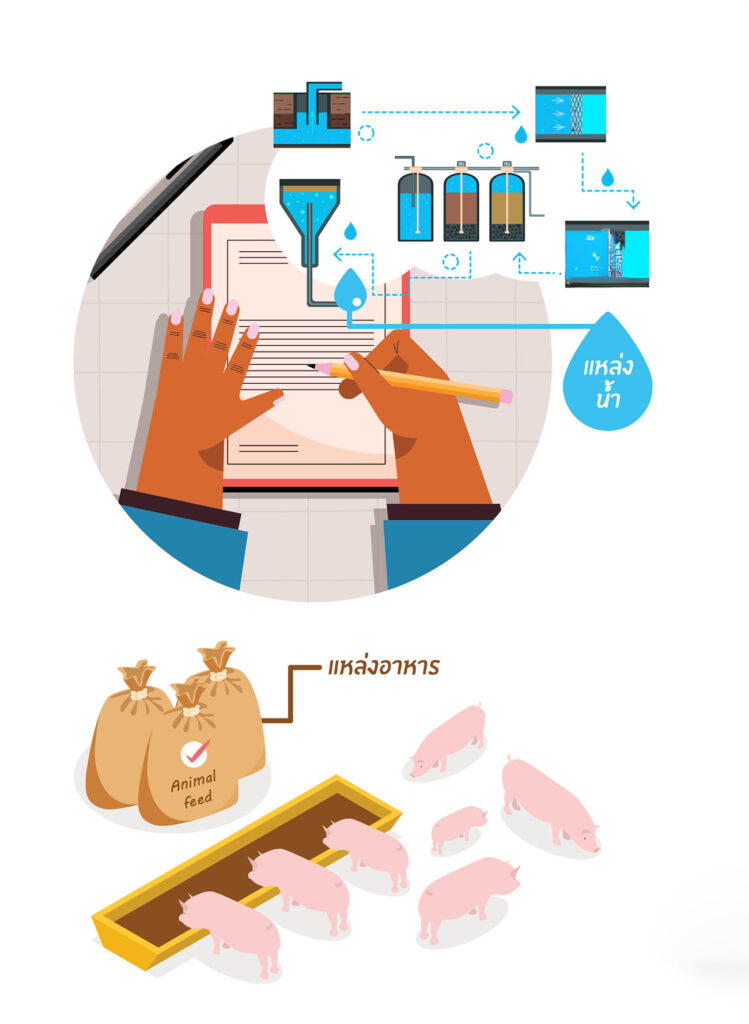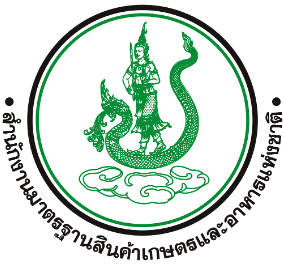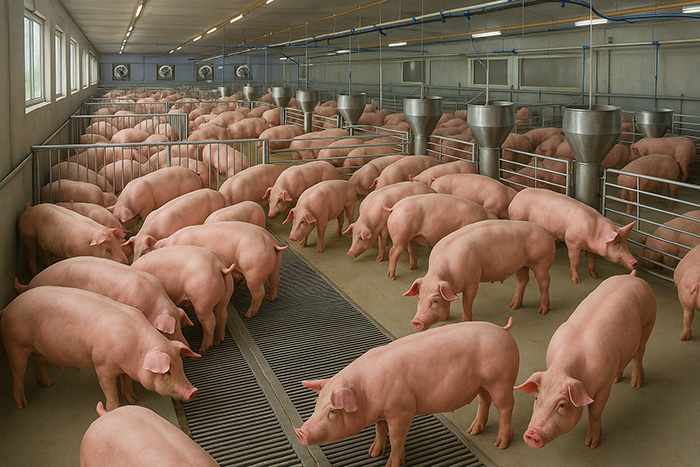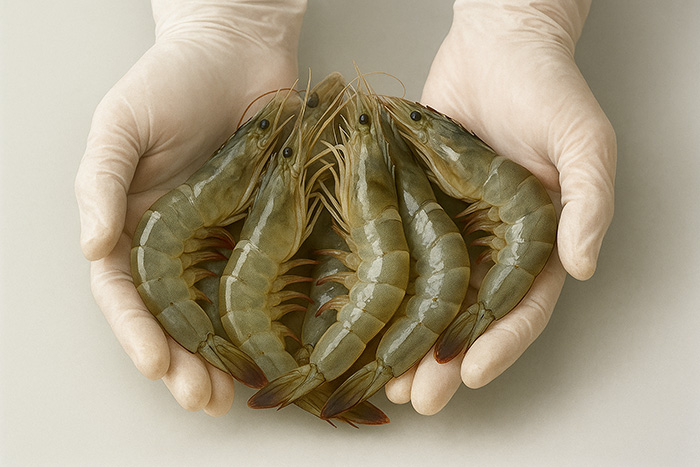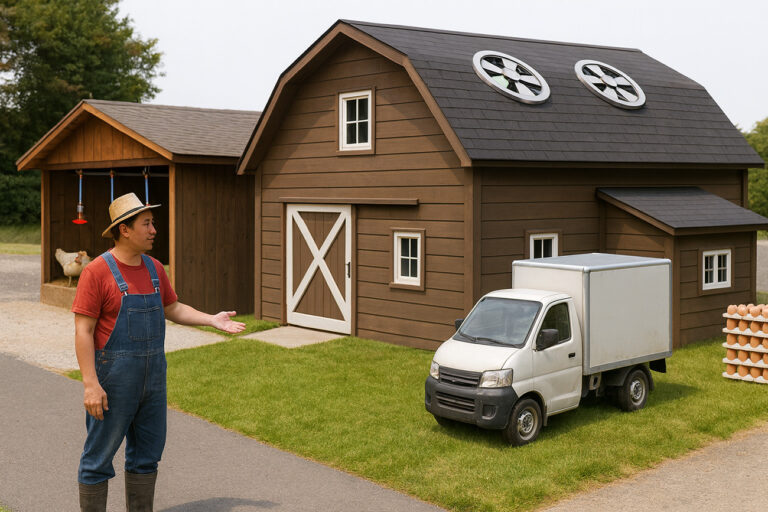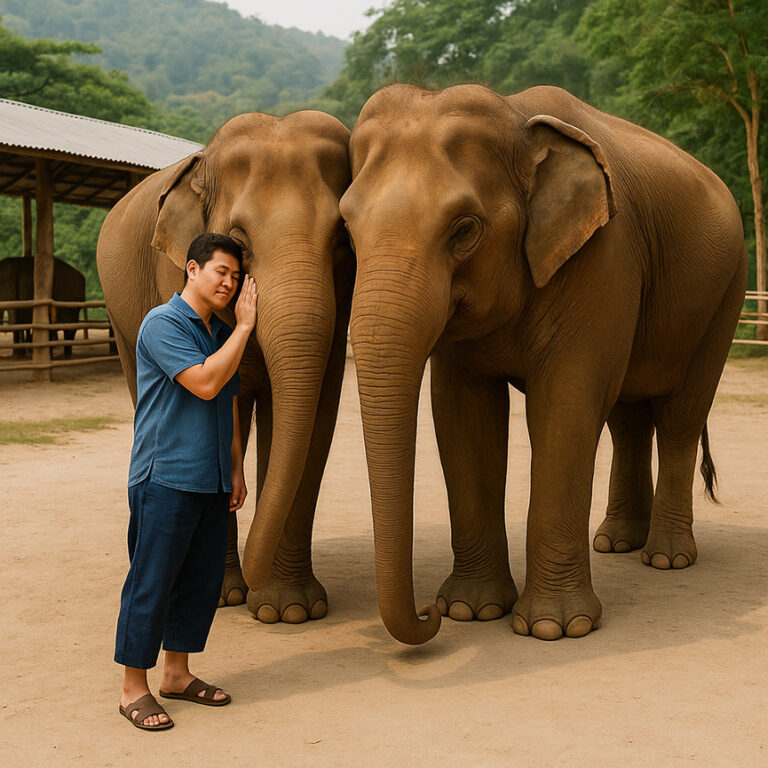Introduction
Pig raising has become increasingly popular among Thai farmers across all regions, either for household consumption or for commercial purposes. The enhancement of production standards at the farm level helps assure consumers of product safety, enables efficient prevention and control of significant epidemics, and strengthens the capacity for sustainable production and trade of pig products in Thailand. Therefore, the Agricultural Standards Committee has considered and approved the establishment of the Thai Agricultural Standard on Good Agricultural Practices for Pig Farm.
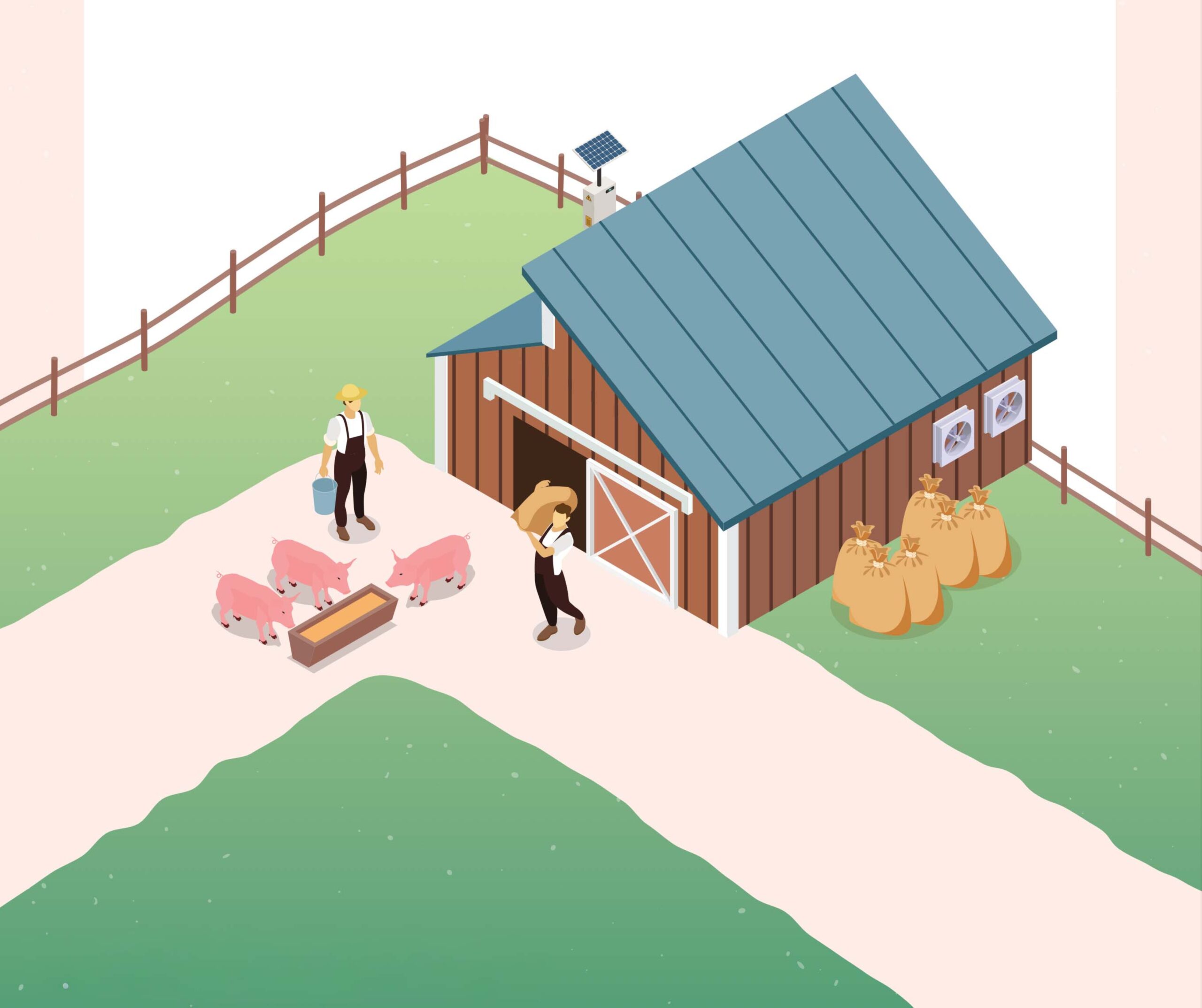
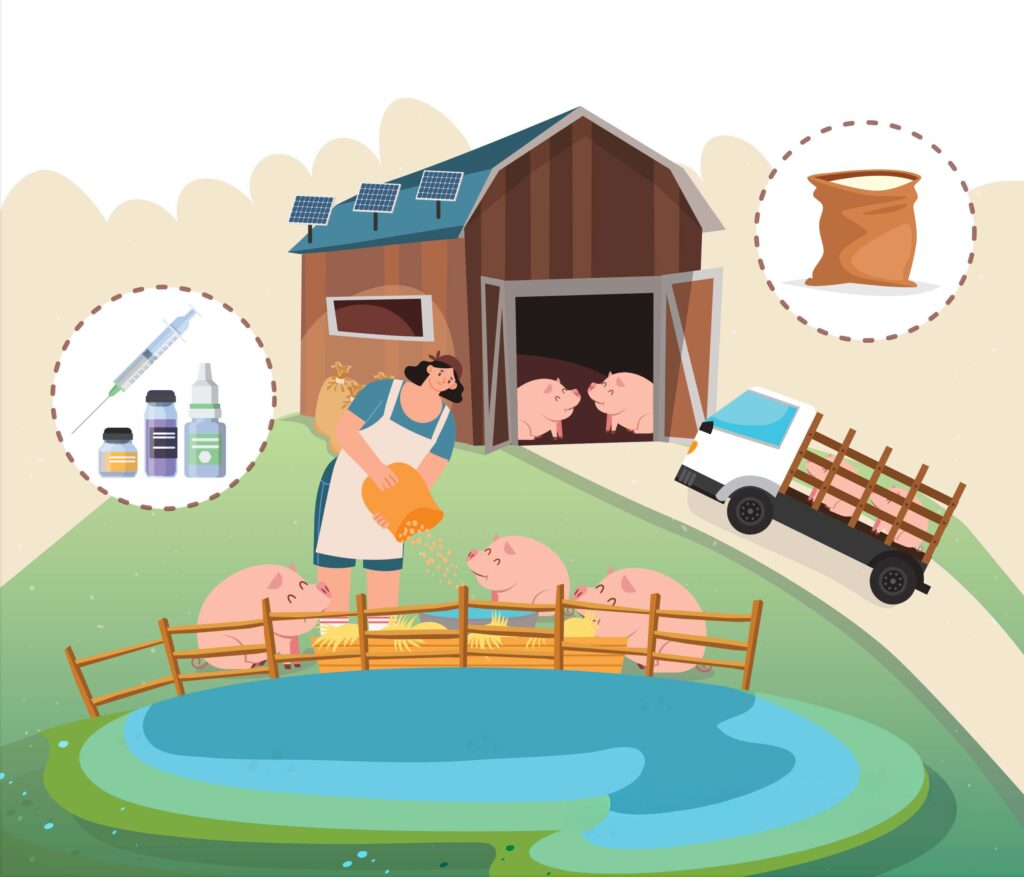
Objective
The Good Agricultural Practices for Pig Farm, as defined, cover farm components, farm management, personnel, animal health, animal welfare, environment, and data recording, in order to ensure that pigs are suitable for further raising or for use as food, taking into account food safety, animal health, animal welfare, and the environment.
Scope
This Thai Agricultural Standard establishes good agricultural practices for pig farms as defined herein. ‘Pig farm’ means an establishment that raises pigs, nursery pigs, or fattening pigs, either singly or in combination. It covers farm components, farm management, personnel, animal health, animal welfare, environment, and record keeping, in order to obtain pigs that are suitable for further raising or for use as food, taking into consideration food safety, animal health, animal welfare, and the environment. This Thai Agricultural Standard applies to farms raising pigs of the scientific name Sus scrofa, including both domesticated and wild pigs.
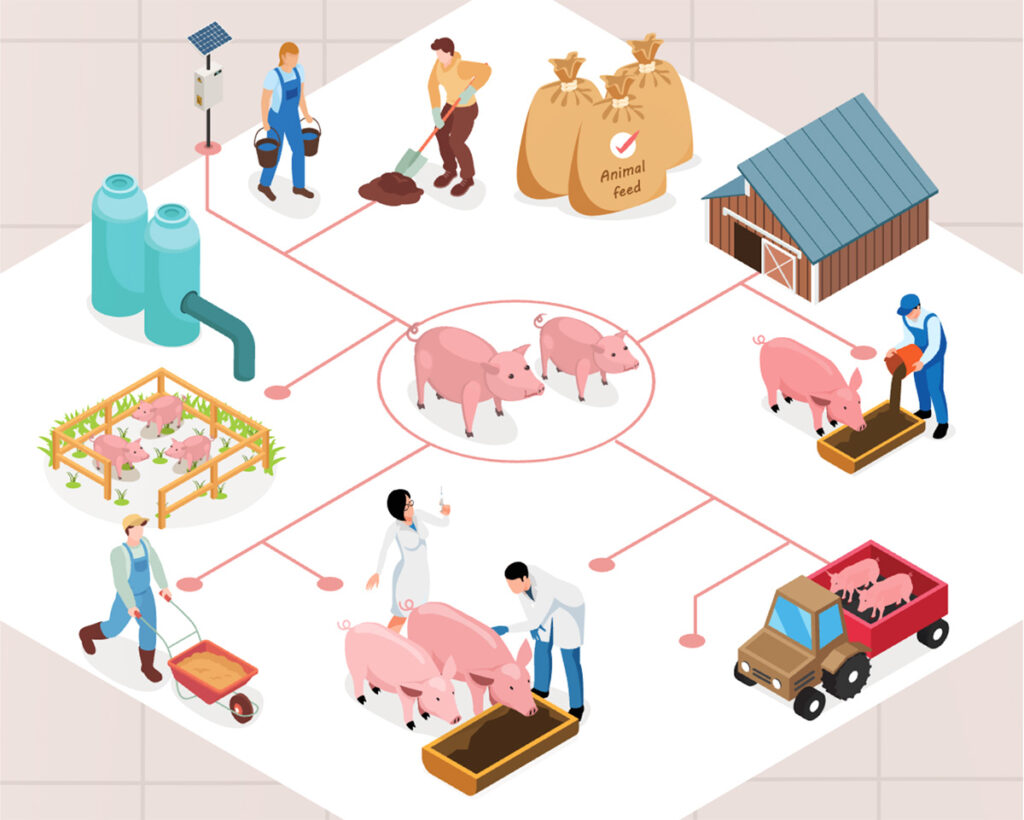
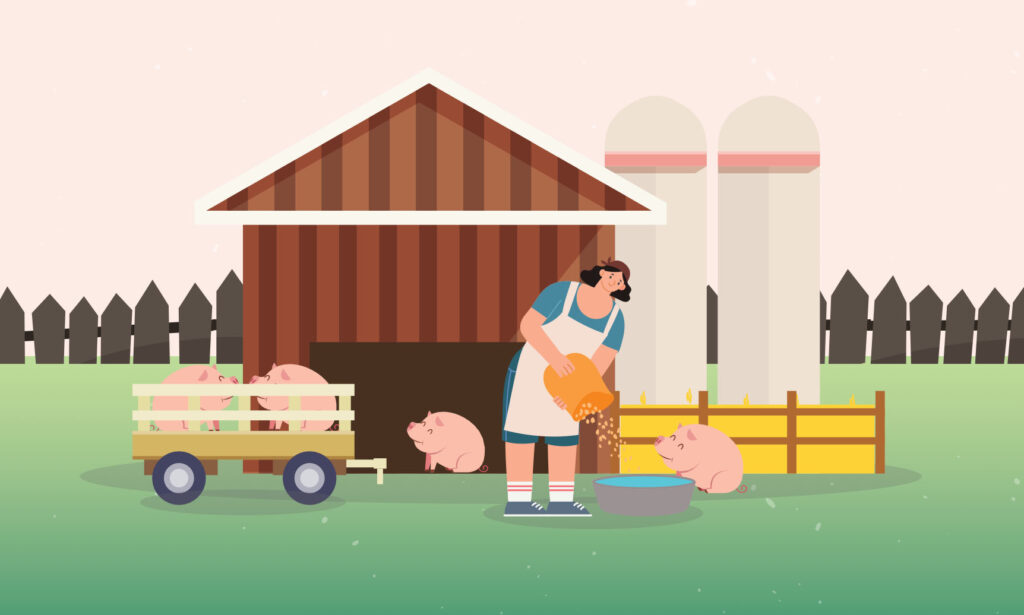
Relevance of TAS 6403-2022 to Pig Producers, Importers and Exporters
1. Producers (Pig Farms)
This standard is designed for direct producers, namely farmers or pig farm operators at all levels, to comply with the principles of Good Agricultural Practices (GAP) for pig raising, such as:
- Hygienic Farm Management
- Disease Control and Veterinary Drug Use
- Waste and Environmental Management
- Traceability of Each Batch of Pigs
Compliance with this standard enables farms to be certified for quality, which serves as an essential requirement for both domestic distribution and export.
2. Importers
Importers of pigs or pig products intended for distribution in Thailand shall import such products from production sources that operate under a standard system equivalent to TAS 6403-2022 or from farms certified by the Department of Livestock Development, in order to ensure that the imported pigs are...
- Free from Animal Epidemics
- Certified with an Animal Health Certificate
- Operate under a production system that ensures consumer safety.
3. Exporters
For exporters of pigs or pig products, certification under TAS 6403-2022 serves as a “key passport,” as trading partner countries such as China, Japan, Vietnam, and the European Union require evidence of GAP farm certification and animal health assurance systems from Thailand to confirm that…
- Pigs are traceable to their sources (traceability).
- Production is in compliance with animal welfare and environmental requirements.
- Exported pork is safe for consumers.
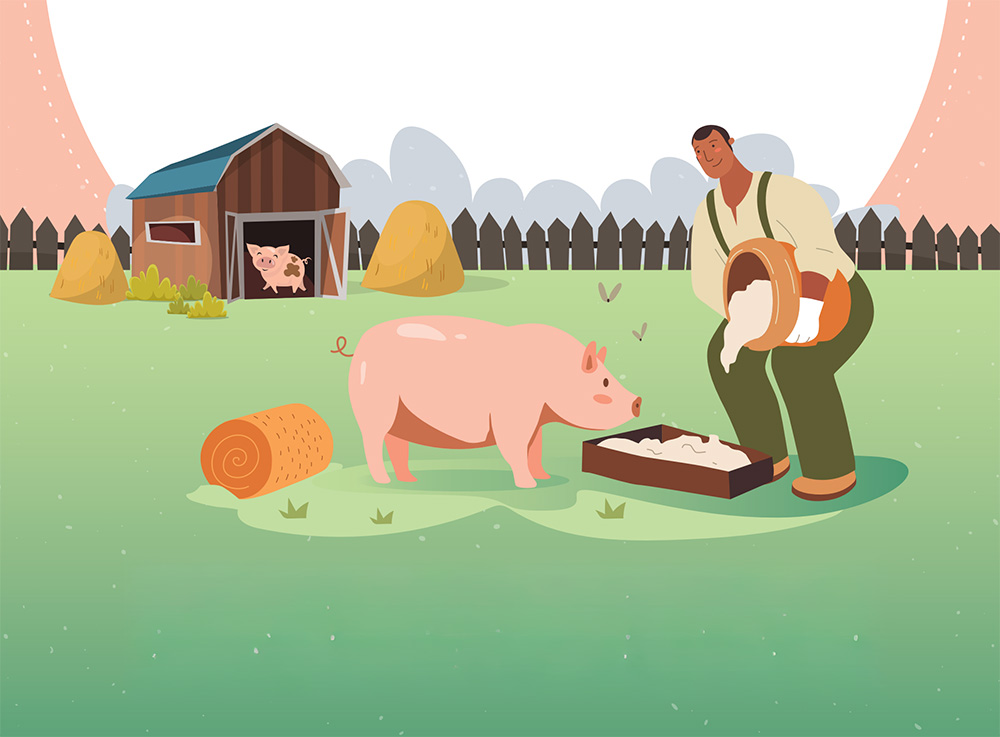
Key Elements of Good Agricultural Practices for Pig Farm
Summary of Key Elements of TAS 6403-2022 (Good Agricultural Practices for Pig Farm)
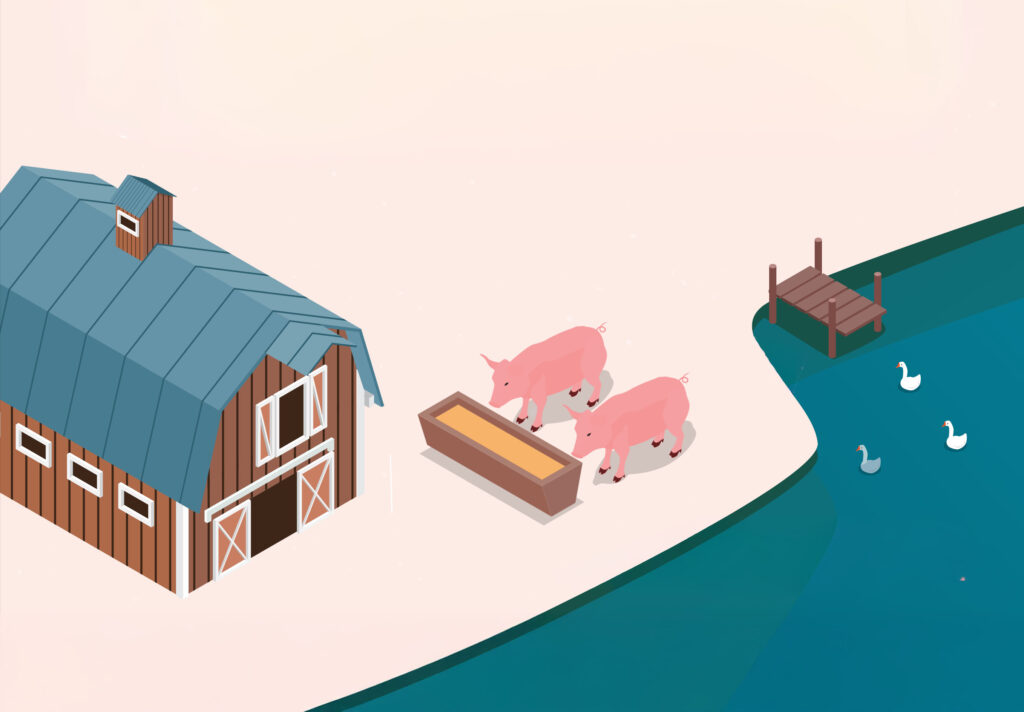
Scope of Good Agricultural Practices for Pig Farm (TAS 6403-2022)
- Pig Farm means an establishment where either boars, sows, nursery pigs, finisher pigs, or any combinations are raised.
- Applied to farms where pigs with the scientific name Sus scrofa, both domesticated and wild, are raised.
Requirements of Good Agricultural Practices for Pig Farm (TAS 6403-2022)
1. Farm Components
1.1 Location
- Evidence showing consent to operate farm by local authority shall be available.
- The farm shall be located in an area away from the environmental risk of contamination of physical, chemical and biological hazards, which may pose threats to pig and human health including animal welfare. Otherwise, appropriate risk management measures shall be in place.
- The farm shall be located in an area where transportation routes are available for transport of pigs, feed, medical supplies, and tools and equipment. It shall not be situated in a flood-prone area.
- The farm shall have adequate supply of clean water.
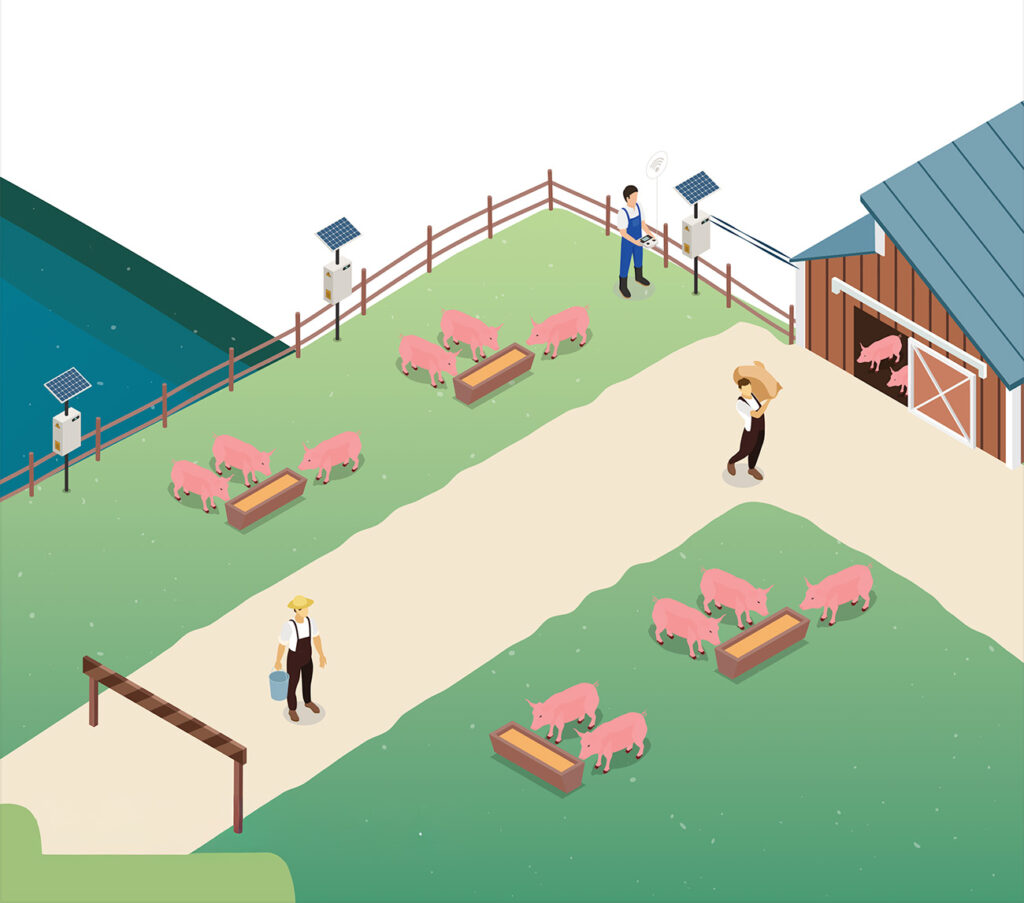
1.2 Farm Design and Layout
- The farm shall have sufficient area appropriate for pig raising, not too crowded to cause any problems to the environment, animal health and welfare.
- The farm shall have fences or natural barriers that are able to control entry and exit of humans and to prevent other animals from outside.
- Farm layout shall be designed to facilitate operation in a hygienic manner. Areas shall be separately allocated for each activity.
- Measures shall be in place for prevention of other animals entering production areas. Entry and exit of humans shall be controlled through designated entry/exit points to prevent cross-contamination.
1.3 House
- Pig houses shall be structurally sturdy, hygienic, well ventilated and easy for cleaning and maintenance.
- Pig houses shall have sufficient space for pig raising with a good environmental condition inside the house corresponding to breed, size and age of pigs.
- In the case of enclosed houses of which environment conditions are controlled, alarm system and appropriate measures for dealing with power failure or automatic equipment breakdown shall be in place.
2. Farm Management
2.1 Farm Manual
- Farm manual shall be made available to provide details of essential operations for pig farming as follows:
- House preparation prior to receiving pigs for raising.
- Farm management
- Pig Raising Systems
- Feed and water management for pigs.
- House, tools and equipment cleaning and maintenance.
- Pig health management.
- Pest control.
- Sanitation and environment management.
- Animal welfare management
- Record keeping
- Essential procedures and work instructions shall be documented.
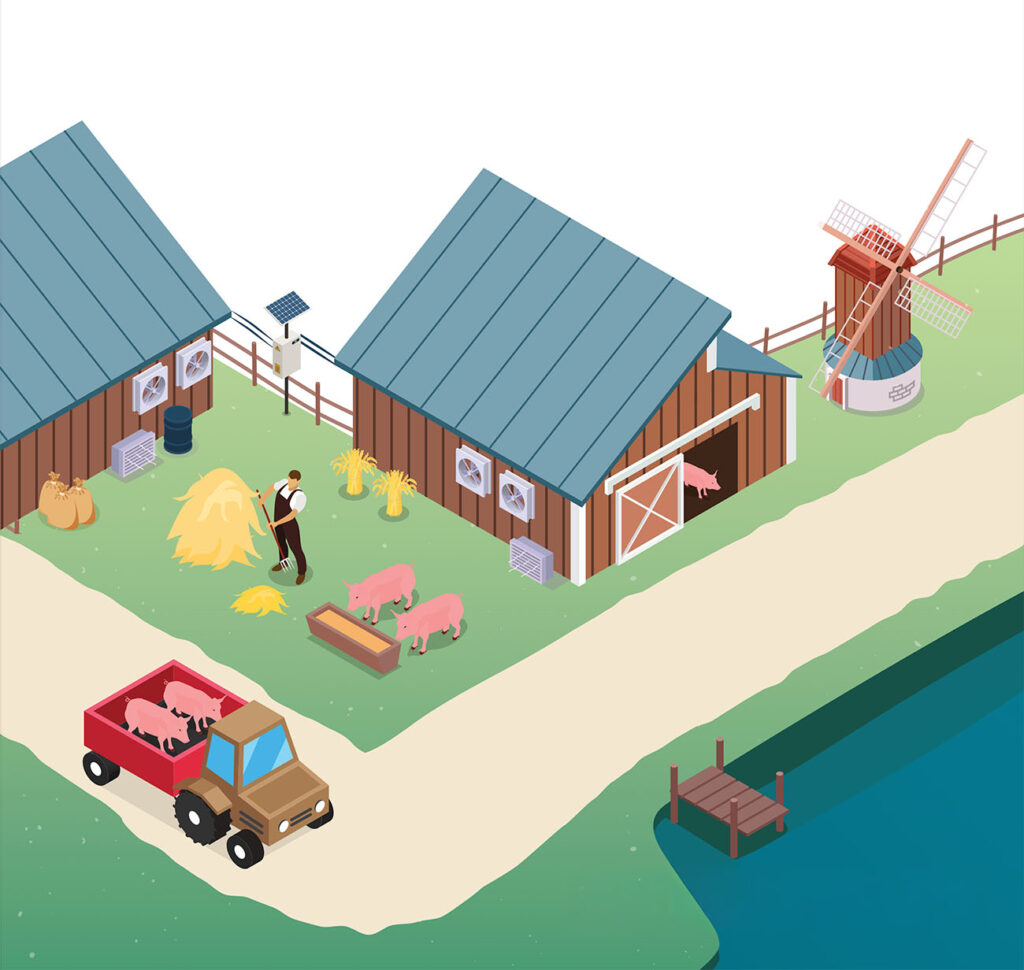
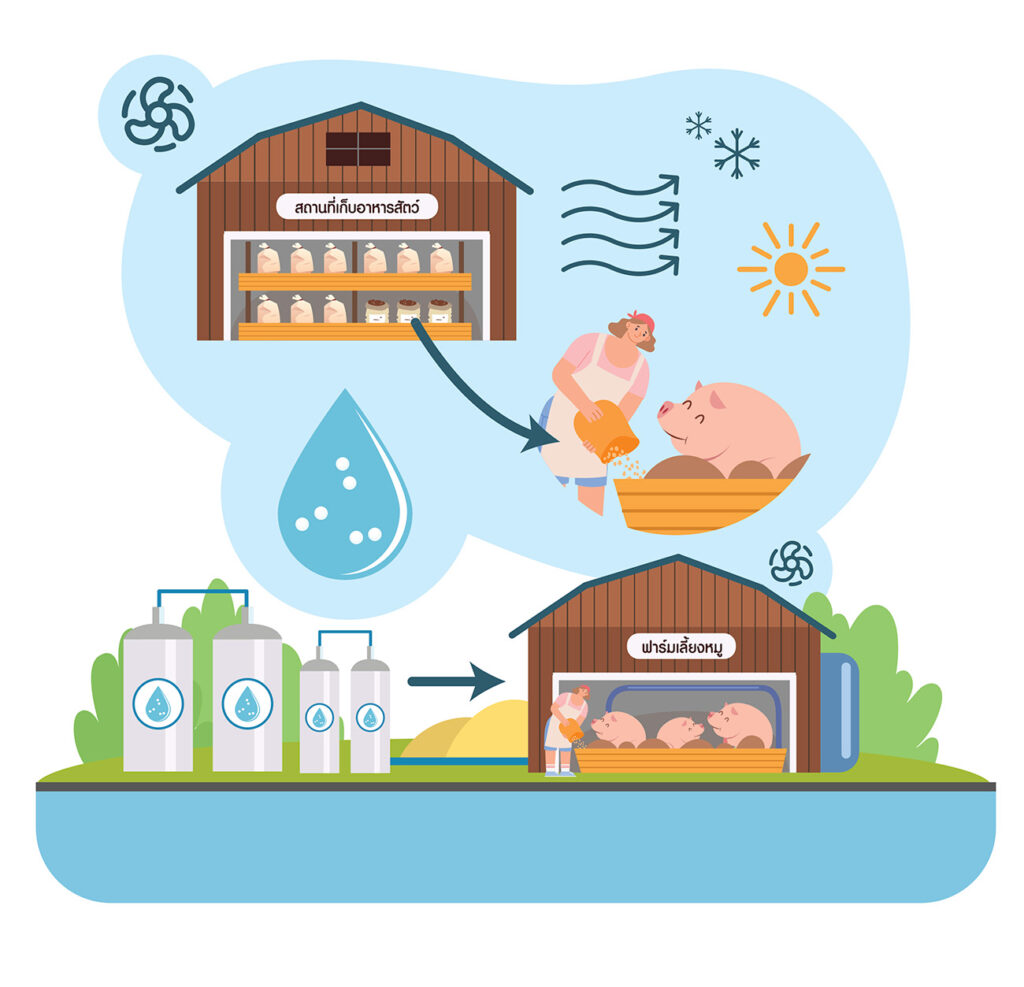
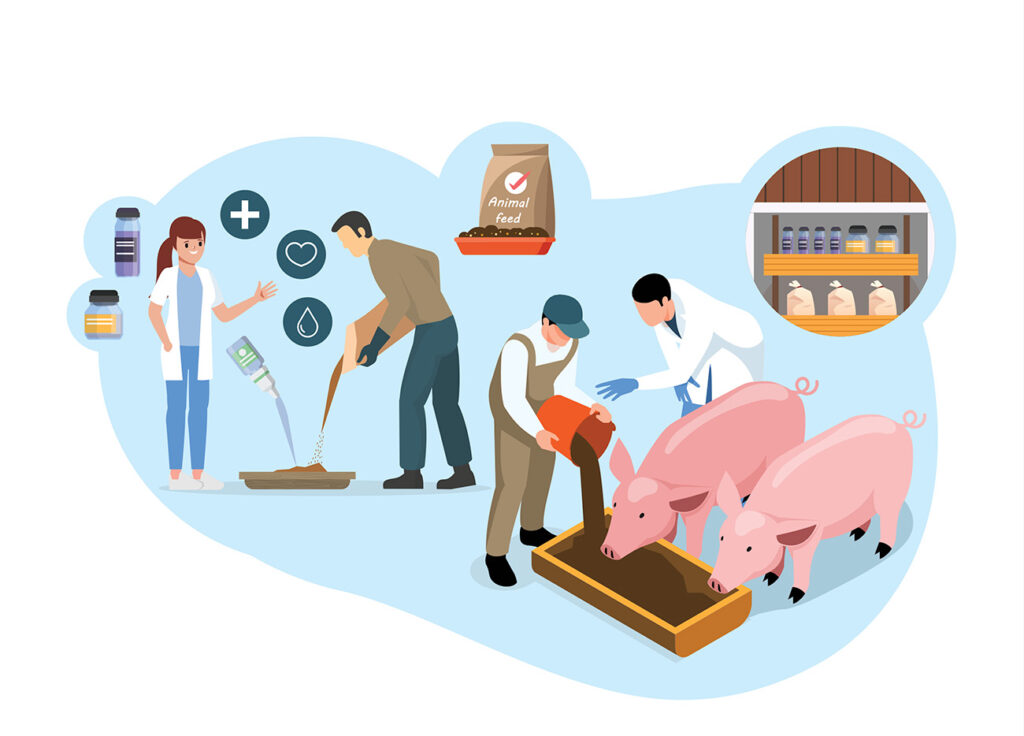
2.2 Feed and Water Management
- Feed used shall be of good quality, safe, and suitable for pig raising in accordance with the Animal Feed Quality Control Act B.E. 2558 (2015).
- Prohibited substances stipulated by the Animal Feed Quality Control Act B.E. 2558 (2015) shall not be used.
- The use of medicated feed shall be under the supervision of the farm veterinarian.
- Preliminary examination on physical appearance of feed quality shall be conducted.
- Feed containers and feeding equipment shall be suitable to the age, size and number of pigs.
- Storage facilities for feed and raw materials shall be clean, well ventilated, and able to prevent moisture, development of moulds and stored pests.
- First in – first out rule for stored feed shall be practiced.
- Water used on farm shall be prevented from contamination of hazards.
- Clean water shall be available and accessible for every pig.
2.3 Management and Maintenance of Housing, Tools and Equipment
- Pig houses, tools and equipment shall be cleaned in a hygienic manner.
- Pig manure shall be removed, and pig house shall be thoroughly cleaned to prevent accumulation of manure inside the house and its surroundings.
- Pens, tools and equipment shall be thoroughly cleaned and disinfected after removing pigs from the house. Pig house shall be kept vacant for a certain period of time, as specified by the Department of Livestock Development, before restocking a new lot of pigs.
- Appropriate measures for pest control and eradication shall be in place.
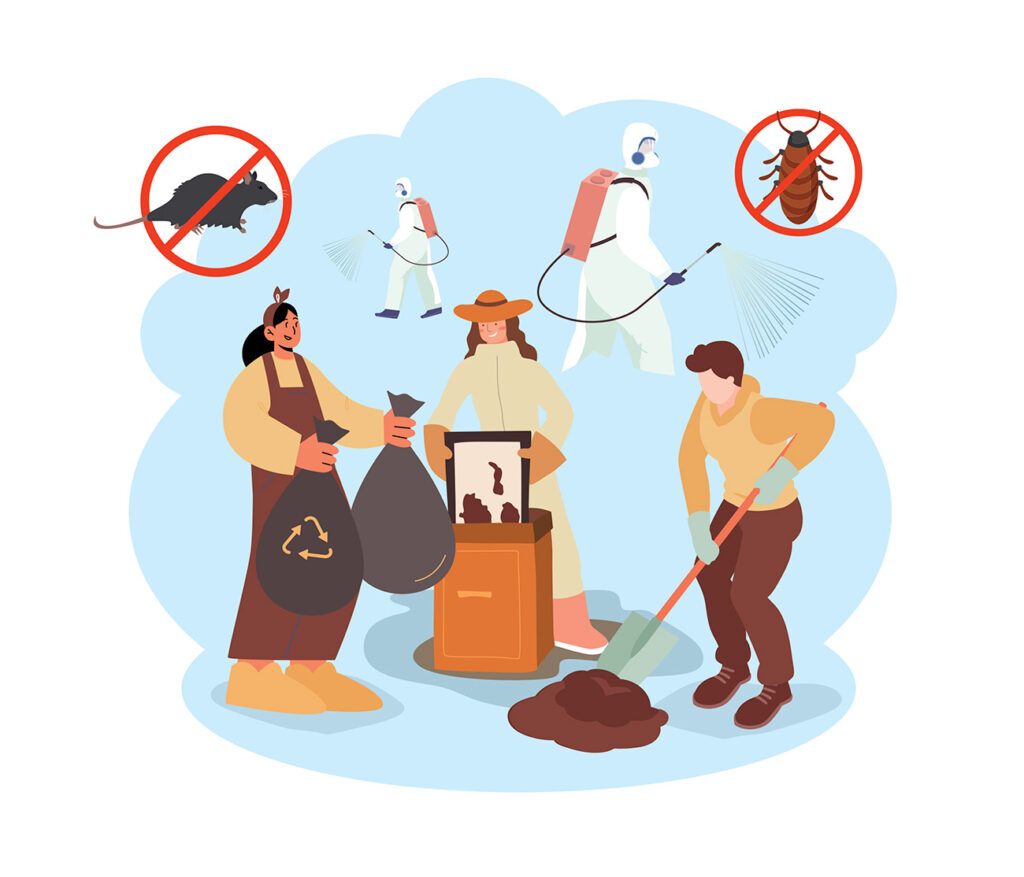
3. Personnel
- Farm shall have enough personnel whose tasks and responsibilities are clearly defined.
- Personnel shall have knowledge and ability suitable for the jobs.
- Farm shall have a licensed veterinarian certified by the Department of Livestock Development for the supervision of pig farm.
- Personnel shall have good personal hygiene and receive annual health check-up, including important zoonotic diseases.
- Measures shall be in place to prevent contamination of pathogens into the production areas through personnel.
- Personnel who have been sick from contagious diseases which may cause contamination to the production system shall not be allowed to work in pig houses.
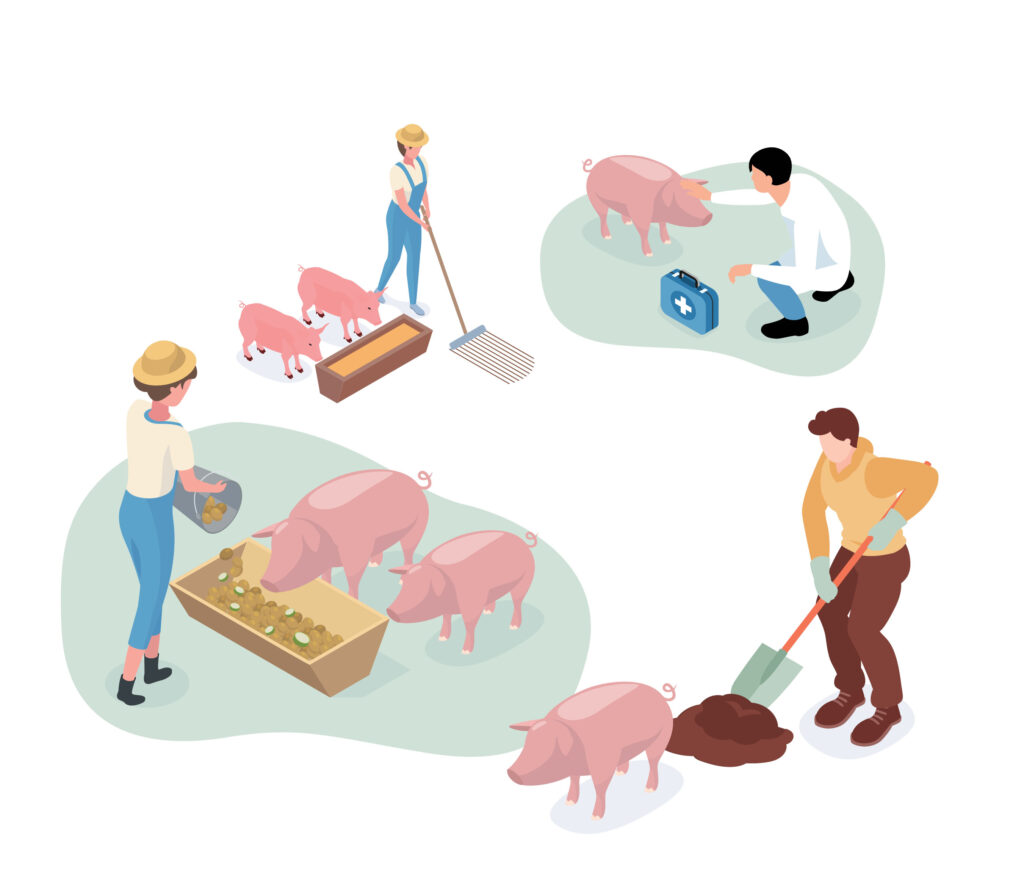
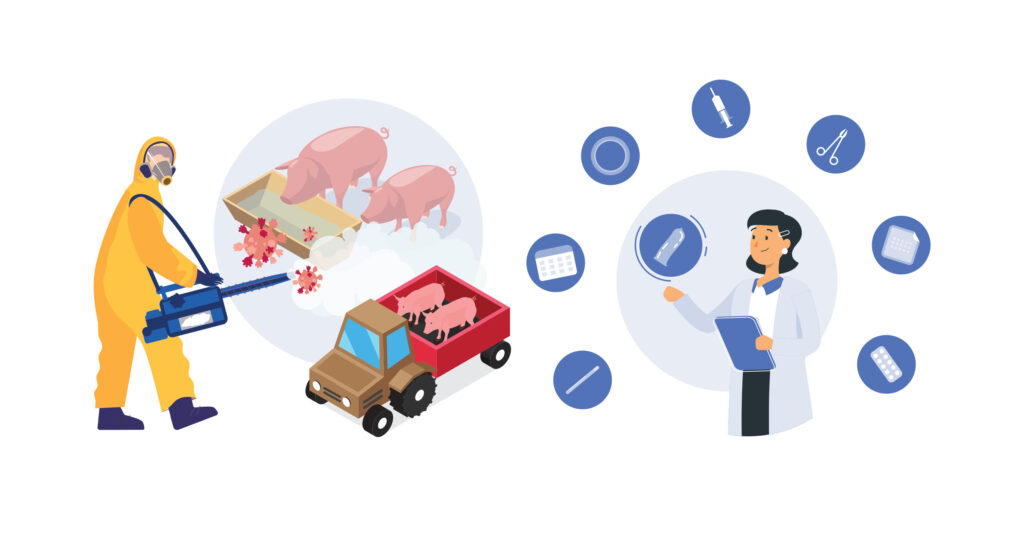
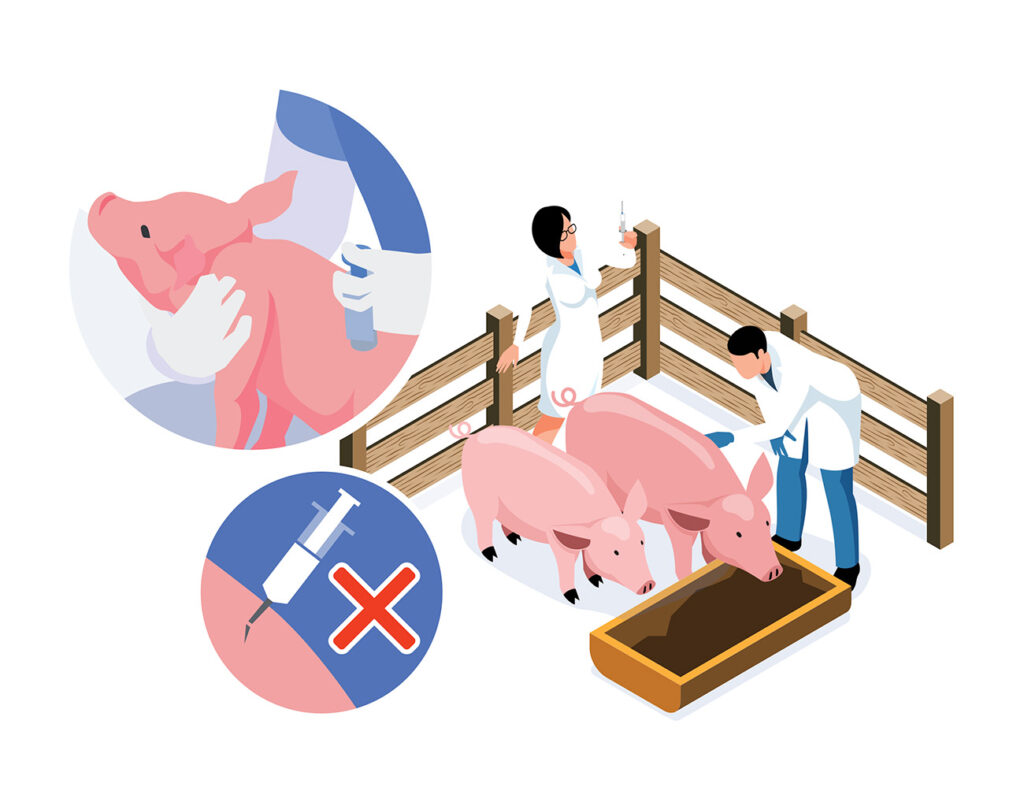
4. Animal Health
4.1 Disease Prevention and Control
- Biosecurity measures shall be in place to appropriately prevent and control diseases. Implementation of those measures shall be under the supervision of farm veterinarian or a person who has been assigned by the farm veterinarian.
- Measures to prevent introduction of diseases via incoming lot of pigs shall be in place.
- Introduction of diseases via vehicles, tools and equipment and any persons shall be prevented and controlled prior to entry and exit. Every entry and exit shall be recorded for the purpose of traceability.
- Programmes for vaccination and elimination of internal and external parasites shall be in place, and implemented under supervision of farm veterinarian.
4.2 Animal Disease Therapy
- Animal disease therapy shall be supervised by a farm veterinarian and carried out in accordance with the Veterinary Profession Act, B.E. 2545 (2002) and the Drug Act, B.E. 2510 (1967).
- Injection shall be conducted in such a way that no part of broken needle is left in any animal’s body. In case such problem occurs, corrective action shall be in place.
5. Animal Welfare
- Pigs shall be raised and taken care of in a proper condition, with good hygienic practices, and provided with adequate living space, feed and water in compliance with the Cruelty Prevention and Welfare of Animals Act, B.E. 2557 (2014).
- In case any pigs are sick, injured, or disabled, and treatments have failed, euthanasia shall be considered to prevent any further suffering. It shall be conducted under supervision of farm veterinarian or person who has been assigned by the farm veterinarian.
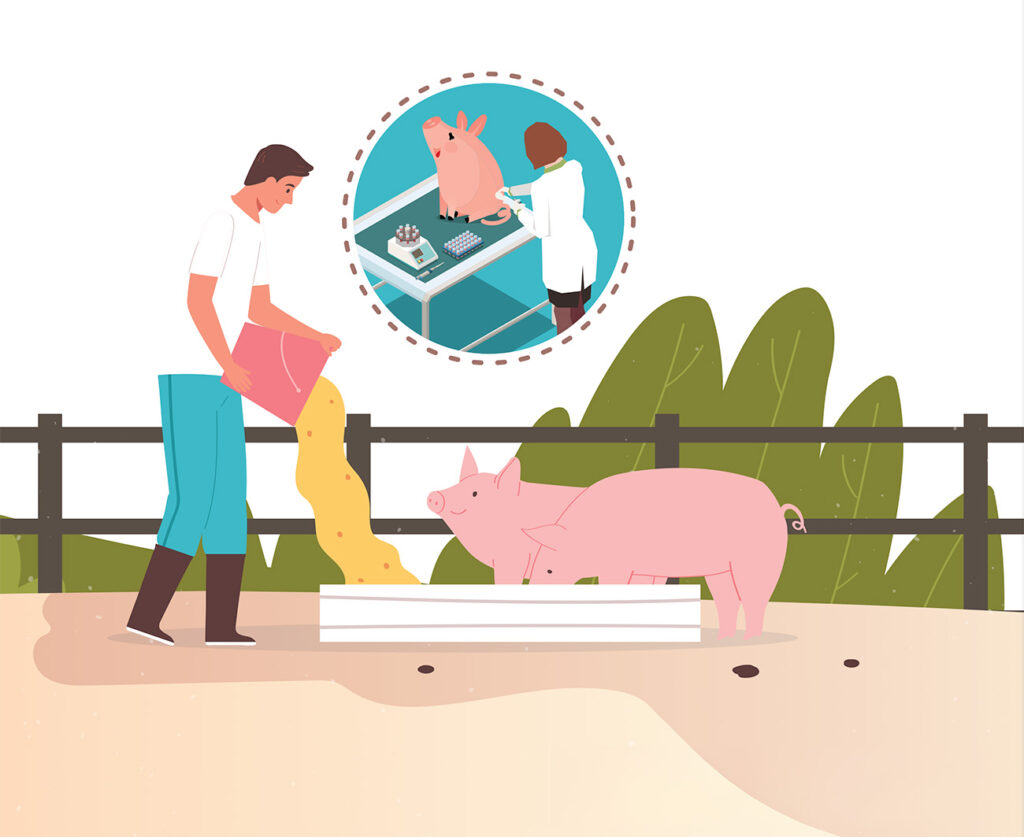
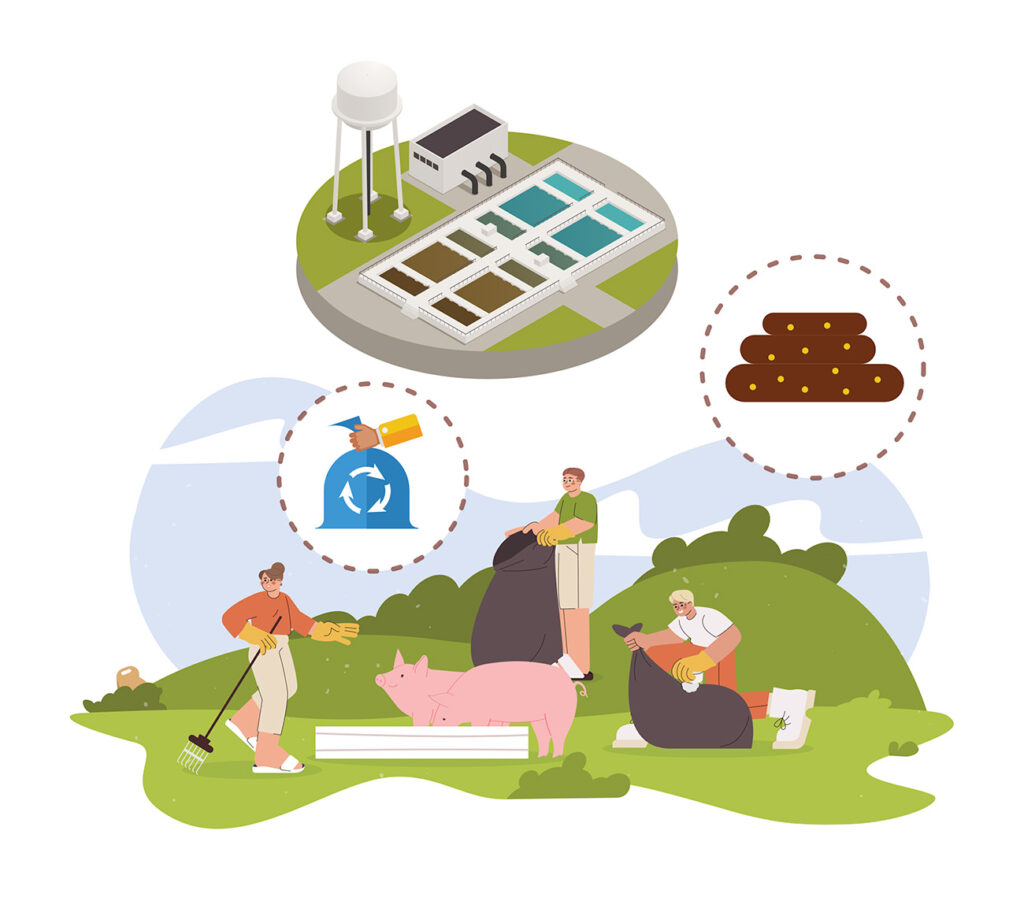
6. Environment
- Garbage and waste shall be collected in a covered trash can and disposed of by appropriate and hygienic methods.
- Methods to dispose of infected and hazardous waste separately from general garbage shall be in place.
- Pig carcasses shall be disposed of and destroyed by appropriate methods at the discretion of farm veterinarian.
- Wastewater treatment system shall be in place to improve quality of discharged water. The discharged water shall be in accordance with the notifications of the Ministry of Natural Resources and Environment entitled, “Designation of pig farms as a pollution source which effluent to public water resource or environment must be controlled” and “Effluent control standard from pig farms.
- Pig manure management and nuisance odour prevention shall be in place.
7. Data Recording
- Data on essential operations affecting animal health, disease control, animal production and environment management shall be recorded as follows:
- Pig information, e.g., identification number, age, sex, breed, breeding history, parturition, vaccination and treatment.
- Feed and water management, e.g., sources and provisions of feed and water.
- Receiving of pigs showing their sources.
- Selling and distribution of pigs.
- Entry and exit of persons and vehicles.
- Usage of chemical agents, disinfectants, or pesticides.
- Application of vaccines and veterinary drugs, e.g., veterinary drug prescription, authorization form of veterinary drug usage.
- Personnel records, e.g., personal information, training or on-the-job training records, responsibilities, and results of annual health check-up.
- Wastewater treatment records.
- Records shall be kept for at least 3 years.
